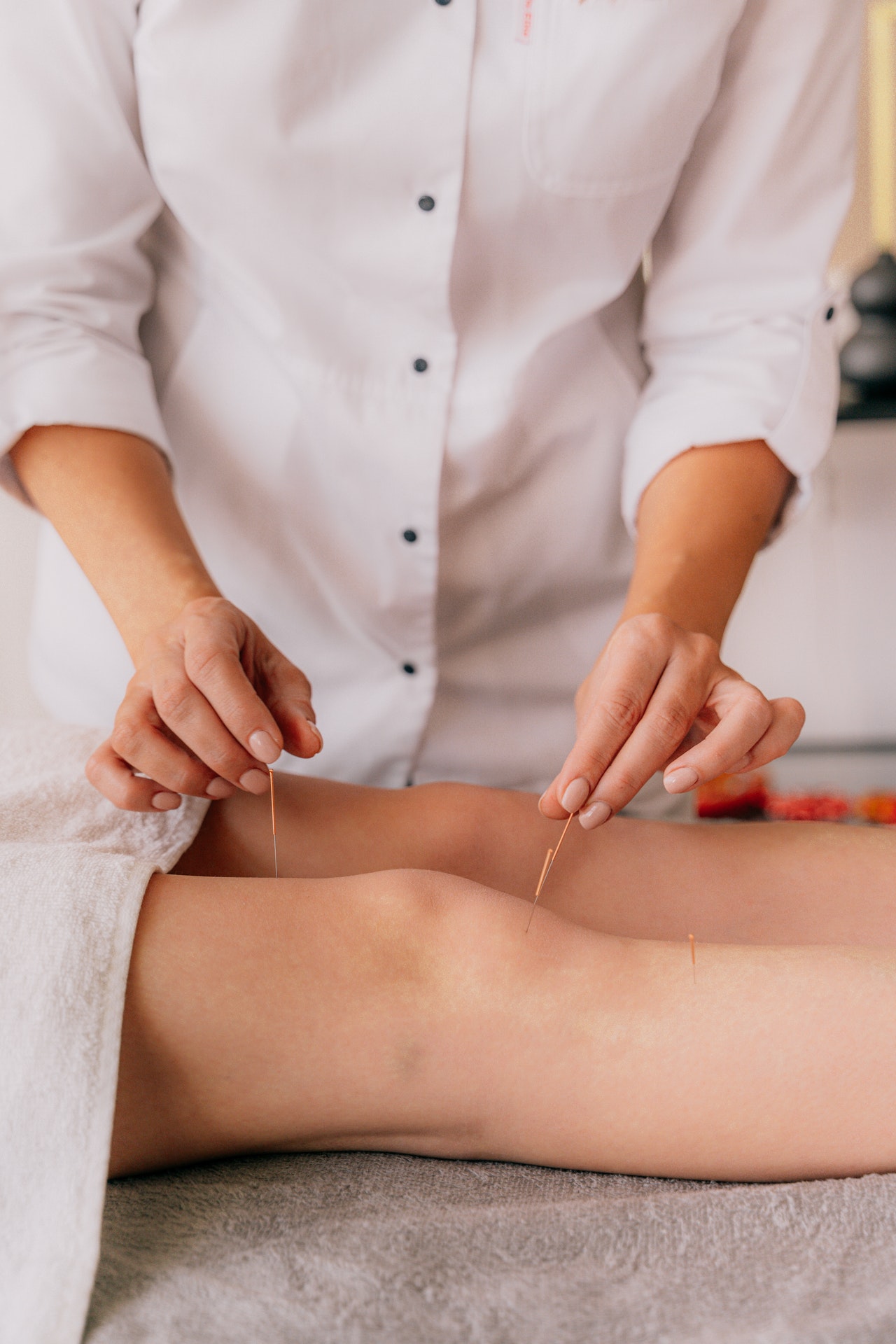Acupuncture performed by a qualified and experienced practitioner is very safe, however, there are occasions when things can go wrong. If a needle goes too deep, for instance. This article explains the various ways acupuncture can go wrong, however it is important to remember that these occurrences are rare, and with proper training, you should be able to minimise the risk of causing any harm to your clients.
So, what happens when an acupuncture needle goes too deep? If an acupuncture needle goes too deep then there is a risk that it can either puncture an organ such as a lung or gallbladder, or it hits a nerve or blood vessel causing pain and discomfort. However, this is very rare especially when the acupuncture professional has been trained competently.
Read on to learn about some of the risks associated with acupuncture treatments.
When an Acupuncture Needle Goes too Deep, What Happens?
If you insert a needle too deep at certain pressure points, there is a risk of an organ puncture, usually to the lung or gallbladder, however, this is a rare case and is unlikely to happen with proper acupuncture training. There is also a risk of hitting a nerve or blood vessel which is not likely to be as serious, but might induce some pain and discomfort for your client.
What Happens When an Acupuncture Needle Hits a Nerve?
Your client may feel some pain or an intense sensation if a needle hits a nerve, muscle, or blood vessel, yet these occurrences are often fairly harmless. Direct nerve injuries are rare, but potentially serious according to a 1999 study published in the Archives of Family Medicine. In one case, damage to the fibular nerve in the lower leg caused complete paralysis of that nerve along with impaired motor functions, however, this is considered a freak event.
Can Acupuncture Cause Damage?
While there is a risk of serious health complications such as punctured organs and damaged nerves, the overall risks of acupuncture are minimal if you are a competent, certified acupuncture professional who uses sterile needles. Single-use needles are now standard practice in the industry so, as such, the risk of infecting your client is low. However, there are some minor side effects that your clients might experience from the insertion of needles, such as soreness and minor bleeding or bruising, and it is wise to make your clients aware of these slight side effects before your session starts.
Learn more about the safety of acupuncture in our recent blog, Is Acupuncture Safe?, where we go into more detail about the potential side effects and risks of the treatment, as well as important contraindications.
Can Acupuncture Puncture Organs?
In some extreme cases, acupuncture can puncture organs. Pneumothorax and bowel perforation are rare, but potentially fatal complications associated with acupuncture. It is important however to stress that the relative risk of acupuncture therapy is extremely low; according to The Guardian, there have been 86 registered fatalities from acupuncture treatment, which means that your clients are more likely to meet their fate by being struck by lightning, drowning in the bath, or being crushed by a vending machine.
Enough of the fear-mongering and doom, however, as acupuncture is an incredibly popular treatment and rather than cause pain and damage, acupuncture is instead hailed as a method to treat pain and stress and has many benefits.
The Benefits of Acupuncture
Acupuncture is a holistic treatment based on the Chinese idea that a blockage or disturbance in the flow of a body’s life energy (or ‘qi’) can cause health issues and has been practised for over 3,000 years.
The body of study on acupuncture is still limited and researchers aren't sure how it works, although theories suggest that it may induce endorphin release, as well as influence autonomic nervous system activity. There are studies that have found that it can be helpful in dealing with certain health issues. Acupuncture may be used to treat a variety of health conditions including; depression, back pain, migraines, addiction, stress, and knee pain, among others.
How To Reduce The Risk Of A Bad Acupuncture Experience
Ok, so you might be feeling slightly overwhelmed by the thought of a needle puncturing your client's organs, but we want to quell those fears as with proper training and attention to your craft you should be clear to perform acupuncture therapy without risk of complications and build a network of many happy clients.
There are some practical tips on how you can help to reduce the risk of a bad acupuncture experience, and we have previously written a guide on what clients should avoid before their acupuncture session to help things run smoothly. For example, clients should avoid the intake of certain foods, coffee, and alcohol. They should also try to avoid over-tension and provide you with their complete medical history to ensure that you can assess the risk profile of each client on a case by case basis.
Breeze Academy Acupuncture and Dry Needling Courses in the UK
Breeze Academy is among the top acupuncture providers in the UK, offering a range of professional acupuncture courses. Our continual development courses (CPD) fulfil CPD standards and provide numerous benefits ranging from skill and knowledge development. If you wish to improve your professional prospects and learn more about acupuncture, have a look at our available acupuncture courses.
Get in touch with us today for more information about our CPD courses, or have a look on our website at the CPD courses that may benefit you. If you would like any more information please get in touch and we’d be happy to help you on your acupuncture journey.
